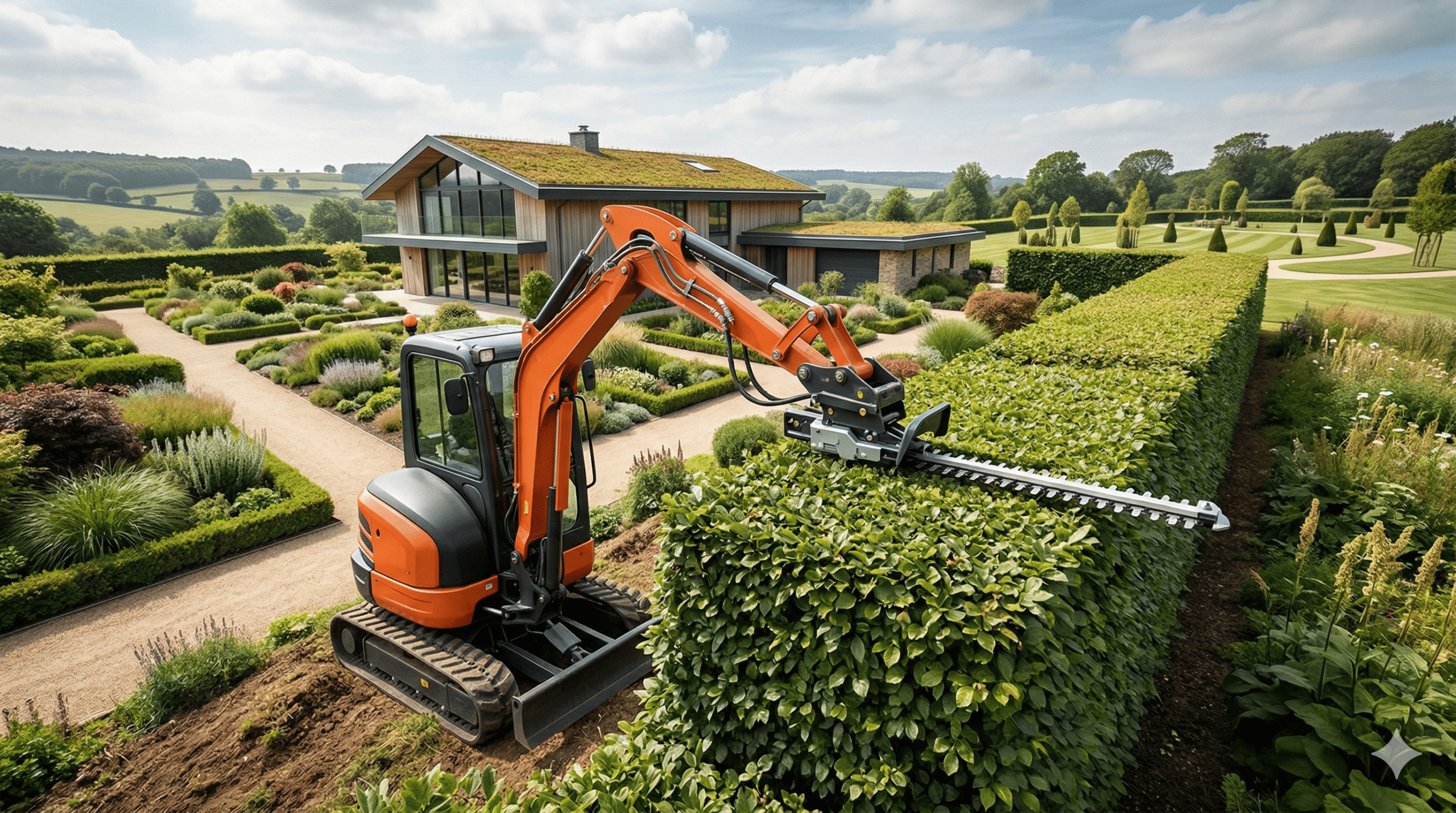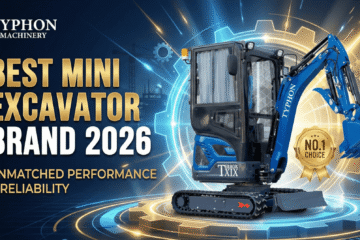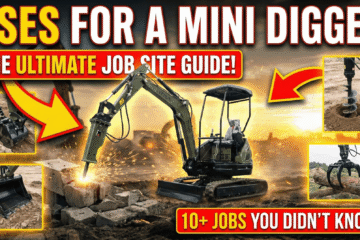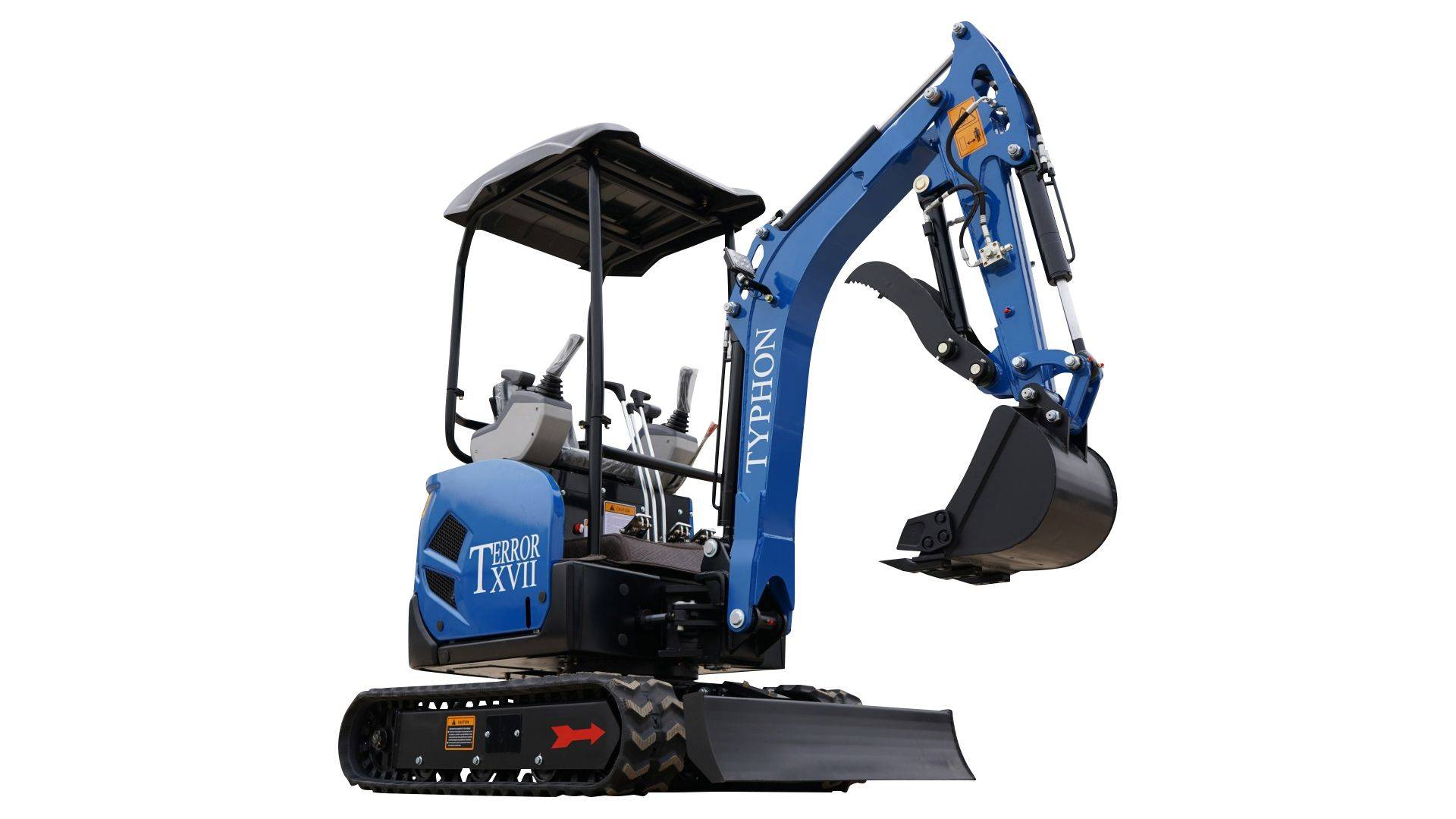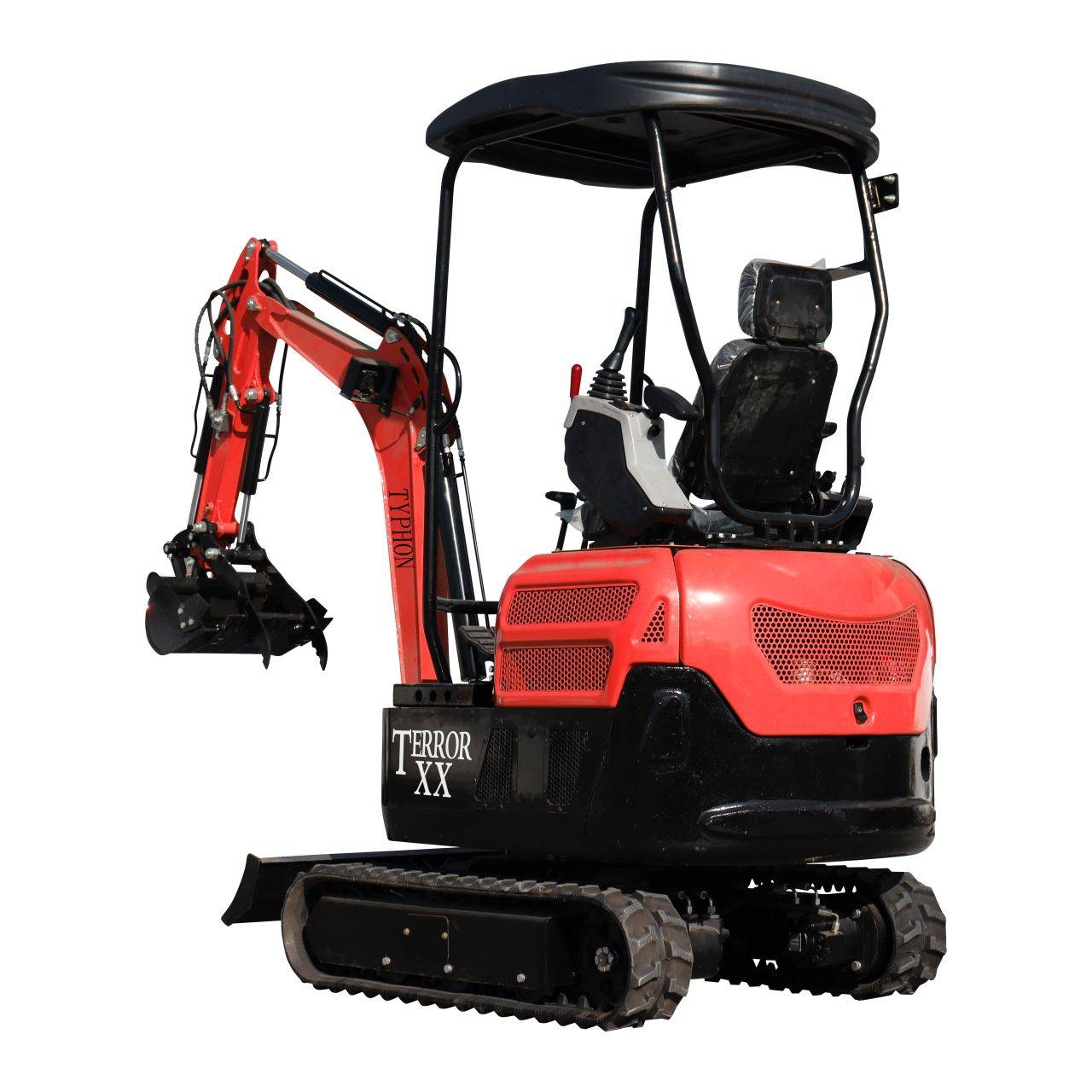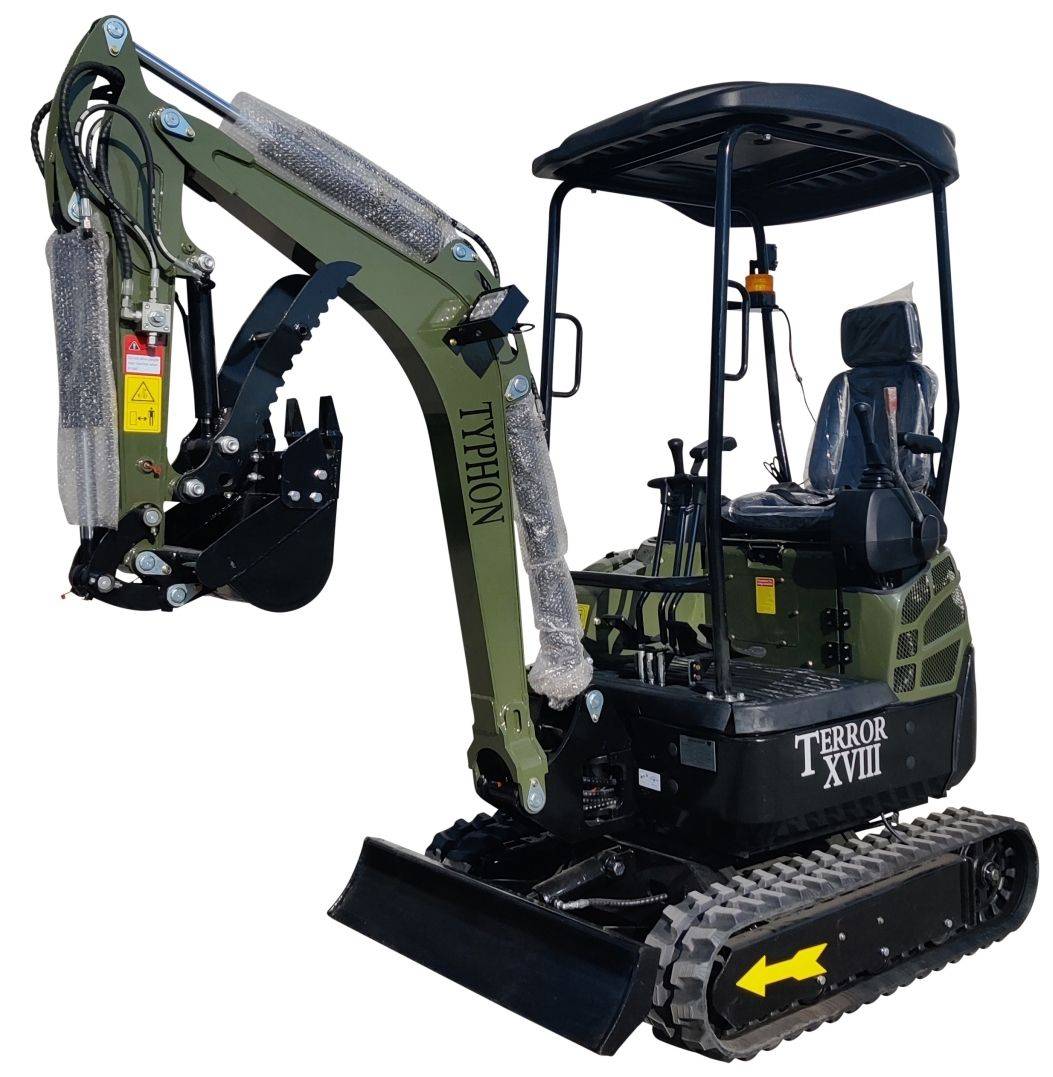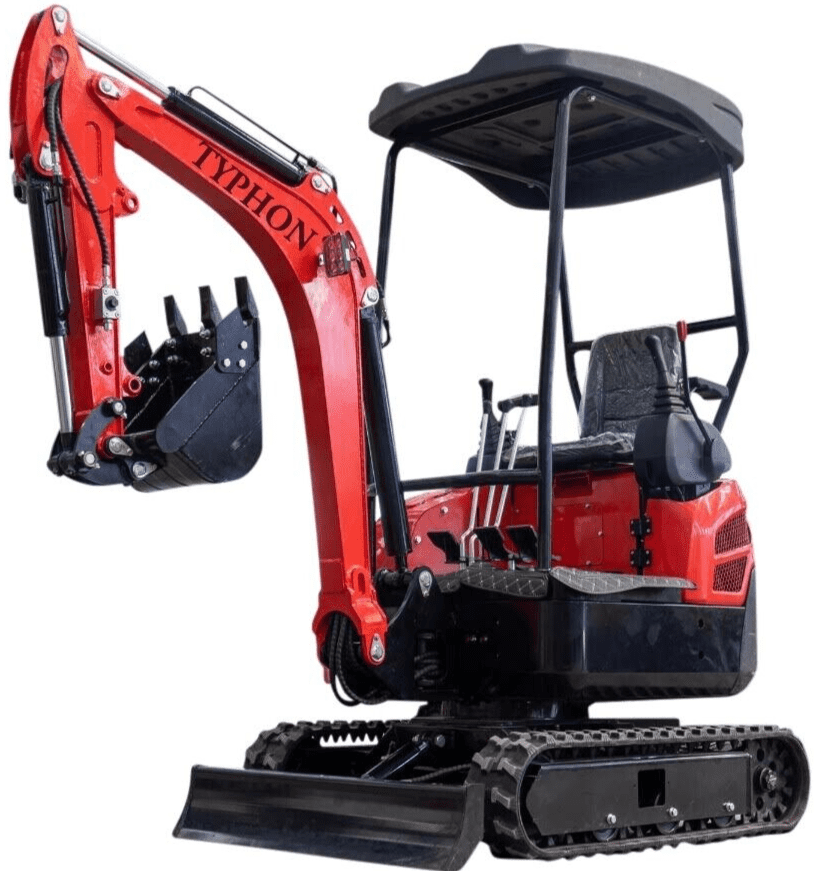Leading Brands in Mini and Compact Excavators: A Comparative Overview
Introduction to Mini and Compact Excavators
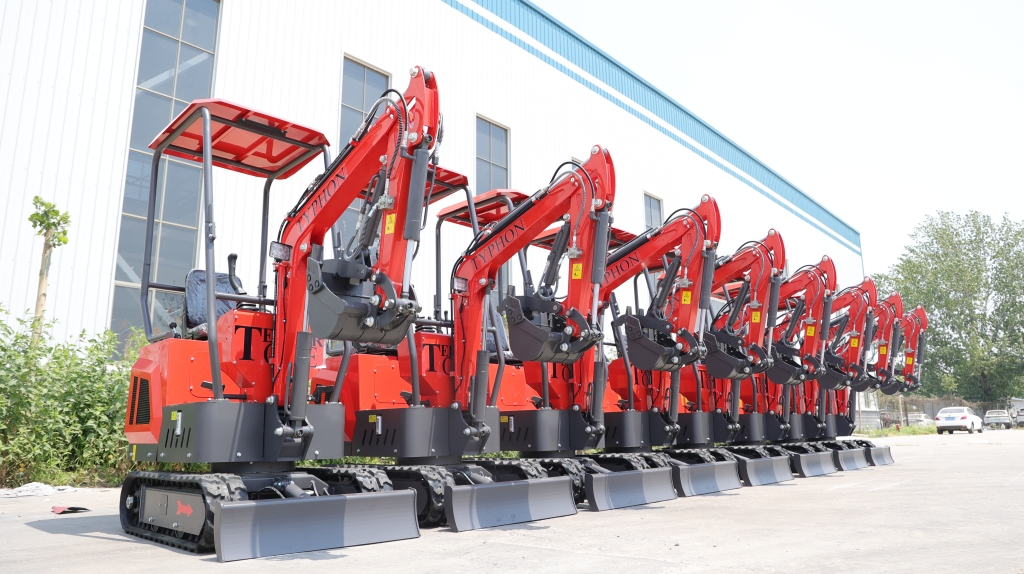
Mini and compact excavators have seen a significant rise in popularity across various sectors, thanks to their versatility and efficiency. These machines, known for their compact size and robust performance, are increasingly becoming indispensable in industries such as construction, landscaping, agriculture, and utility work.
Mini and compact excavators are valued in construction for their ability to perform a variety of tasks, including digging and trenching, lifting, and material handling, often in confined spaces where larger equipment cannot operate. Landscaping professionals value these excavators for their precision and minimal impact on the surrounding environment. In agriculture, they are used to dig irrigation ditches, prepare land, and move materials, whereas utility companies use them to install and maintain underground infrastructure.
Their capacity to deliver high productivity while maintaining low operational costs is what is driving the increase in demand for these machines. Their compact nature allows for easier transportation and maneuverability on job sites, making them a cost-effective solution for various projects. Additionally, advancements in technology have equipped these excavators with enhanced features such as improved fuel efficiency, advanced hydraulic systems, and user-friendly controls, further boosting their appeal.
This blog post will provide a comparative overview of three major brands in the mini and compact excavator market: Bobcat, Caterpillar and Kubota. We will look at their key features, R&D efforts, and which industries they serve. By examining these aspects, we hope to offer valuable insights that can help businesses and professionals make informed decisions when selecting the right excavator for their needs.
Bobcat: M-Series Mini Excavators
Bobcat’s M-Series mini excavators are well-known for their advanced design features, which significantly improve performance. These machines are designed to be lightweight and compact, allowing for easier maneuverability in tight spaces. This makes them ideal for work environments where space is limited, such as residential and commercial construction sites, landscaping projects, and utility installations. The M-Series’ compact design allows operators to easily navigate confined spaces, lowering the risk of environmental damage.
The M-Series mini excavators boast several improvements in digging performance. One of the standout features is the enhanced cycle times, which contribute to increased efficiency on the job site. Faster cycle times mean that tasks can be completed more quickly, allowing for higher productivity and reduced operational costs. Additionally, the upgraded hydraulic systems in these machines provide increased power and precision, enabling operators to perform more complex tasks with greater accuracy and control.
Bobcat targets a variety of industries with its M-Series mini excavators. In the realm of residential and commercial construction, these machines are utilized for tasks such as foundation digging, trenching, and site preparation. The landscaping industry also benefits from the M-Series, as their compact size and agility make them perfect for tasks like planting trees, installing irrigation systems, and creating garden features. Utility work is another key application, with the M-Series being used for tasks such as laying pipes, installing cables, and maintaining infrastructure.
Overall, Bobcat’s M-Series mini excavators stand out in the market due to their innovative design and superior performance capabilities. Their ability to operate efficiently in confined spaces, combined with improved digging capabilities and versatile applications, make them a top choice for professionals across various industries.
Caterpillar: Versatile and Durable Mini Excavators
Caterpillar has long been synonymous with durability and versatility in the construction equipment industry. Their range of mini excavators exemplifies this reputation, offering machines that are engineered to perform reliably in various demanding environments. Caterpillar’s approach to mini excavators focuses heavily on creating robust, multi-functional equipment that meets the needs of diverse industries, including construction, agriculture, and industrial applications.
One of the standout features of Caterpillar’s mini excavators is their advanced hydraulic systems. These systems ensure smooth and precise operation, enhancing productivity and control. The latest models are equipped with state-of-the-art hydraulics that allow for more efficient digging, lifting, and other essential functions, making them ideal for intricate tasks in confined spaces.
Operator comfort is another critical aspect that Caterpillar prioritizes. The cabins of their mini excavators are designed to reduce operator fatigue with ergonomic seating, intuitive controls, and excellent visibility. These features not only improve the overall user experience but also contribute to enhanced safety and operational efficiency.
Ease of maintenance is a key consideration in Caterpillar’s mini excavator design. The machines are built with accessible service points and simplified maintenance procedures, which help reduce downtime and extend the equipment’s lifespan. This focus on easy upkeep ensures that owners can keep their machines in optimal condition with minimal effort.
Caterpillar’s commitment to research and development is evident in their continuous advancements in fuel efficiency and machine control technologies. Their mini excavators incorporate innovative solutions such as eco-friendly engines and smart control systems that optimize performance while minimizing environmental impact. These advancements not only address the growing demand for sustainable practices but also provide cost savings for operators through reduced fuel consumption.
Overall, Caterpillar serves a wide range of industries with their versatile and durable mini excavators. Whether it’s for heavy-duty construction projects, agricultural tasks, or industrial applications, Caterpillar’s mini excavators are designed to deliver reliable performance and adaptability, making them a preferred choice for professionals around the globe.“`html
Kubota: Innovation and Precision in Compact Excavators
Kubota has established itself as a leading brand in the compact excavator market through its commitment to innovation and precision engineering. Renowned for their advanced technology, Kubota’s compact excavators are designed to meet the diverse needs of various industries. One of the standout features of Kubota’s machines is their integration of digital controls, which allows for enhanced operational efficiency and ease of use. Operators can benefit from intuitive interfaces that simplify complex tasks, resulting in increased productivity and reduced downtime.
Another significant aspect of Kubota’s compact excavators is their eco-friendly engines. These engines are engineered to deliver powerful performance while minimizing environmental impact. By reducing emissions and improving fuel efficiency, Kubota addresses the growing demand for sustainable construction equipment. This focus on environmental stewardship ensures that Kubota machines not only meet current regulatory standards but are also prepared for future advancements in green technology.
Kubota’s dedication to continuous improvement is evident in the performance and operator experience of their compact excavators. The machines are designed with features that enhance operator comfort and safety, such as ergonomic seating, low noise levels, and advanced hydraulic systems. These elements contribute to a more pleasant and productive working environment, which is essential for long hours of operation in various job sites.
In terms of applications, Kubota compact excavators excel in several key industries. In agricultural projects, their machines are used for tasks such as digging trenches for irrigation systems and preparing land for planting. Residential construction projects benefit from Kubota’s precision and maneuverability, making it easier to work in confined spaces. Additionally, landscaping professionals rely on Kubota excavators for tasks like tree planting, grading, and soil removal, where accuracy and efficiency are paramount.
Overall, Kubota’s compact excavators stand out due to their innovative design, precision engineering, and commitment to sustainability. These qualities make them a preferred choice for professionals across multiple sectors, ensuring reliable performance and exceptional results in every project.
Comparative Analysis: Bobcat vs. Caterpillar vs. Kubota
When evaluating mini and compact excavators, three brands consistently emerge as industry leaders: Bobcat, Caterpillar, and Kubota. Each brand has distinct strengths and weaknesses, making them suitable for various applications and industries. This comparative analysis will delve into their performance, durability, innovative technologies, and operator comfort, providing insights into their research and development efforts and industry applications.
Bobcat is well-known for its strong performance and versatility. These excavators are designed for heavy-duty work, with excellent digging and lifting capabilities. Bobcat machines are well-known for their durability, particularly in harsh operating conditions. The brand’s emphasis on innovative technologies includes advanced hydraulic systems and user-friendly controls, which improve operator efficiency and productivity. Bobcat’s R&D efforts are focused on increasing machine reliability and lowering maintenance costs, making them ideal for construction, landscaping, and agricultural applications.
Caterpillar, or Cat, stands out for its exceptional durability and advanced technology integration. Caterpillar excavators are built to last, with high-quality parts that ensure durability and dependability. Cat machines deliver exceptional power and precision, making them ideal for demanding tasks. Innovative features like the Cat Grade Control system and integrated payload technologies distinguish these excavators, giving operators greater accuracy and efficiency. Caterpillar invests heavily in research and development, focusing on sustainability and technological advancement. These machines are best suited for heavy construction, mining, and large-scale infrastructure projects.
Kubota, meanwhile, is celebrated for its compact design and operator comfort. These excavators provide excellent maneuverability and are perfect for confined spaces. Despite their smaller size, Kubota machines deliver impressive performance with efficient engine technology and reliable hydraulic systems. The brand emphasizes ergonomic design, ensuring that operators experience less fatigue during long hours of operation. Kubota’s commitment to innovation is evident in their continuous improvements in fuel efficiency and machine control. These excavators are particularly popular in urban construction, landscaping, and utility work.
In summary, Bobcat excels in versatility and heavy-duty performance, Caterpillar leads in durability and advanced technology, and Kubota shines in compact design and operator comfort. Each brand’s unique strengths cater to specific industry needs, allowing users to select the most suitable excavator based on their operational requirements.
Conclusion: Choosing the Right Mini or Compact Excavator
As we have explored in this comprehensive overview, selecting the right mini or compact excavator involves careful consideration of various key factors. Performance and durability are paramount, as these machines must withstand rigorous tasks and demanding conditions. Leading brands in the market have established their reputations by producing reliable and efficient models, each catering to specific industry needs.
When choosing a mini excavator or compact excavator, it is crucial to assess your project requirements meticulously. Consider the type of work you will be performing, the environment in which the excavator will operate, and the specific features that will enhance productivity and safety. Factors such as digging depth, lifting capacity, and ease of maneuverability can significantly influence your decision.
Furthermore, the industry-specific needs cannot be overlooked. For instance, construction, landscaping, and agricultural projects each have unique demands that certain brands and models may meet more effectively. Evaluating these aspects will help in narrowing down the options and selecting an excavator that aligns with your operational goals.
Looking ahead, the future of mini and compact excavators seems promising, with advancements in technology and sustainability driving the industry forward. Innovations such as telematics, automation, and electric-powered models are gradually becoming more prevalent, offering enhanced efficiency and reduced environmental impact. These trends suggest that the excavators of tomorrow will not only be more powerful and versatile but also more eco-friendly, aligning with the global move towards sustainable practices.
Ultimately, the right mini or compact excavator is one that meets your specific needs while offering reliability and advanced features. By thoroughly assessing your project requirements and staying informed about industry trends, you can make a well-informed decision that will contribute to the success of your projects.



